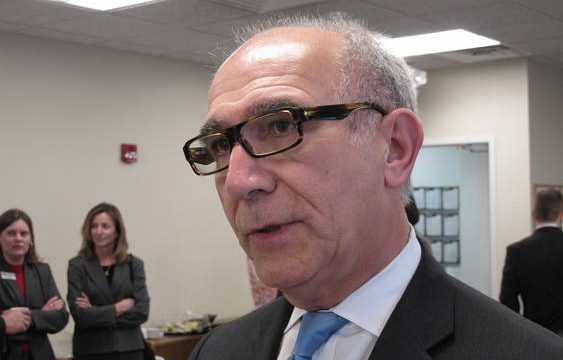SBHE Is Standing Behind Shirvani

Legislators may be considering a “vote of no confidence” in Chancellor Hamid Shirvani, but State Board of Higher Education President Duaine Espegard is standing behind him accusing the legislature of “personal attacks” and claiming they don’t have authority to make hiring and firing decisions.
Espegard said the issue seems to come down to “personal attacks” on Shirvani. He said the board fully supports his work so far and the sweeping reforms he’s already overseen. Legislators need to “give him a chance,” he said.
“We’re doing exactly what the Legislature and the people of North Dakota asked us to do, which is to move up the quality of higher education in North Dakota,” he said. “We’re not going to tolerate any tactics that take us back to the old model, and maybe some want the old model, but that’s not the model we follow.”
Espegard said this isn’t the first time North Dakota’s higher education leader wasn’t given a fair chance – in 2006, then-Chancellor Robert Potts resigned, accusing former NDSU President Joseph Chapman of engaging in “a calculated effort to undermine the effectiveness” of the university system and his role as chancellor.
“They let him run him out, didn’t they?” he said. “This is the same thing, but this time you have a board that’s 100 percent behind the chancellor.”
It may be the case that the legislature doesn’t have the direct authority to hire and fire chancellors, but I think that’s a major problem with the way we’re governing higher education right now. The university system doesn’t feel as though they need to be accountable to legislators.
That lack of accountability is at play in every single higher education problem we have in this state.
The question is, how far is the legislature willing to push this? If the NDUS won’t back Shirvani, will they hold up Governor Jack Dalrymple’s three appointments to the Board of Higher Education who haven’t been confirmed yet? Will they be willing to cut budgets to show their displeasure with higher education?
Frankly, the university system budgets are so bloated they should be cut anyway, forcing administrators to re-prioritize some of their spending (we might have fewer controversies over spending if the university system had less money to work with).
But, really, nothing is going to change unless the university system gets fundamental reform. Whether Shirvani goes or stays, something has got to give. We’ve had turmoil in the university system for some time now, long before Shirvani was hired. The problem doesn’t begin and end with him.







